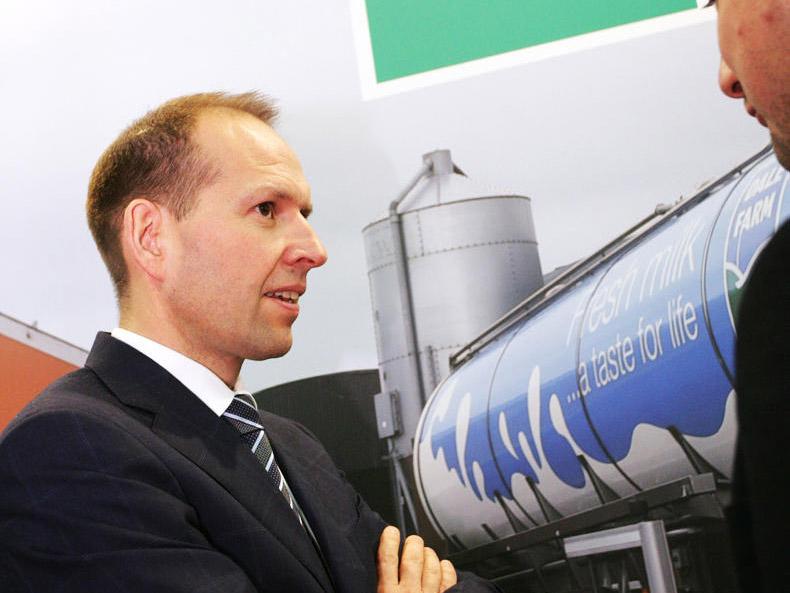Ahead of any talk this week about “regulatory alignment” across the Irish border post-Brexit, senior figures from the NI dairy industry were in Westminster last week giving evidence as part of an inquiry into post-Brexit trade by the Environment, Food and Rural Affairs (EFRA) committee.
The delegation included Glanbia Cheese CEO and current chair of trade body Dairy UK, Paul Vernon, and Dale Farm CEO Nick Whelan.
Both men made clear that they want trading relationships to continue as they currently are after Brexit. That means unrestricted access to the EU market, the continued ability to trade with current non-EU customers, and for NI, unrestricted access to Britain.
They warned that even if a free trade agreement is reached with the EU after Brexit, non-tariff barriers could emerge (for example, product checks at ports), which could add costs. “The numbers being bandied around are between 3% and 6%, which is quite a high margin within the dairy sector,” said Vernon.
One other possible scenario post-Brexit is that the UK fails to complete a free-trade deal, and must trade with the EU and others on the basis of World Trade Organisation (WTO) rules. Given that the UK is not self-sufficient in milk (around 90% self-sufficient), there is an opportunity to displace some imported product (particularly Irish cheese).
“If you take cheese as an example, WTO tariffs on dairy will do what they are designed to do: they will stop trade,” said Vernon. He maintained that would drive up UK consumer prices which would in turn reduce demand for dairy. “So it is a vicious circle, not a virtuous circle,” suggested Vernon.
At the same time, if prices are going up, the UK could instead opt to slap zero tariffs on imports (essentially a cheap food policy). “That could signal a very grave future for our agriculture overall,” added Whelan.
Debate
While he acknowledged that the government has publicly stated its intention to leave the EU single market and customs union post-Brexit, he suggested that there is still a serious debate to be had.
“What we struggle to explore is the benefit we are giving up or we are going to attain. It is a bird in the hand versus a bird in the bush.
‘‘In fact, it is two in the hand and one in the bush. We are trying to understand the logical, evidence-based argument that suggests that (leaving the customs union) is the right way forward,” concluded the Dale Farm CEO.
A final Brexit deal could come about after a series of trade-offs among politicians, which ultimately leaves the UK in some form of new customs arrangement with the EU covering various sectors, including agri-food, a leading bank economist has suggested.
Speaking at an agri-food briefing last Friday, Alan Bridle, the UK economist for Bank of Ireland UK, said that a hybrid solution could represent a “good deal” for the UK. It would allow trade to continue as it currently is, but still give the British government control over other issues such as immigration.
“The Brexit issue has got very political now, and realistically I don’t know if we will get there. But if there is a political will, you can do almost anything,” he said. However, he maintained that the most recent suggestion that NI effectively stays in the single market and customs union, while the rest of the UK leaves, makes “no economic sense” for this part of the island.
During his presentation, he also looked at the implications for the UK if it leaves the EU without any deal. While accepting it could cause significant problems for business, he also suggested that it could accelerate positive change in the economy. For example, a further devaluation of sterling against other major currencies could act to boost UK exports.
Reduced access to EU labour could force companies to invest in automation, which ultimately could drive up productivity. “If there is no deal, the question for government is how does it re-orientate the economy? How does it re-cycle import tariffs? What does it do with VAT? All these things start to come on to the pitch, and could be positive for business,” he said.






 This is a subscriber-only article
This is a subscriber-only article










SHARING OPTIONS: